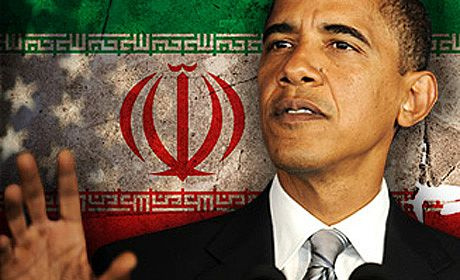How Serious Are Obama’s Incentives?

Recently, Mr. Amano has stated that despite the sanctions imposed on Iran, no change has been made in the enrichment process. What are the objectives of such statements, in your opinion, and what would their impacts be on future negotiations?
This statement appears to be to Iran’s benefit. But it seems that if an in-depth study of this statement was made, one would comprehend that it is actually against Iran. The reason is that the General Director of the International Atomic Energy Agency is a legal and international personality. He has to perform his duties within the framework of his obligations including supervision over peaceful activities of countries in the nuclear field and also with nuclear non-proliferation in the world. But when he states that the sanctions against Iran have had no impact on the reduction of Iran's nuclear activities, he has actually taken a political position which damages his international reputation as an unbiased and neutral personality. Of course, the IAEA General Director can take political positions, but with regard to the nuclear activities of different countries, he must make statements within the framework of technical and legal issues. Therefore, this statement might seem to be to Iran's benefit, but it implicitly suggests that the P5+1 countries must leave the negotiation process and pursue heavier measures against Iran. It means that they should either expand the sanctions or launch a military attack against Iran.
Prior to the Brussels meeting to coordinate the positions of the P5+1 member countries, Mrs. Ashton had said that the goal of this meeting was to study the situation and to understand which fields cause the most concern. What did she mean by that?
Mrs. Ashton, as a British politician, speaks very carefully. In my opinion, we must pay attention to the statements she did not make. This sentence tells us that the P5+1 intend to negotiate regarding their concerns. What are their concerns? Their concerns are that, through acquisition of more nuclear technology, Iran will have the conditions to build a nuclear bomb. But the reality is that they gathered in Brussels to study Mr. Obama's plan, for Mr. Obama has officially announced that the US has a new plan to prepare new grounds for the improvement of negotiations. In my opinion, the major issue which Mrs. Ashton has not referred to is that the new US plan was also most probably discussed in this meeting.
Now we must see what they intend to offer Iran, for their previous proposals were not very interesting. But the main point is what they will offer in return for their three demands from Iran; the first demand is that Iran leave its 20% enrichment; the second demand is that Iran must take the 20% enriched uranium to a third country; and the third one is that Iran must close the Fordow site. They discuss these demands in the first stage. Now we must wait to see whether Mr. Obama, in his second term, has reached the conclusion that the US must offer an interesting proposal to Iran or not.
While quoting western diplomats, Reuters has stated that serious incentives for Iran have been proposed in Brussels. How serious, in your opinion, are these incentives?
First, we must see what these incentives are to be able to assess how serious they are. But this means that they, themselves, have comprehended that the previous incentives were not significant and serious enough to attract Iran's attention. Mr. Kissinger wrote an article in the Washington Post last week where he explicitly stated that the US must recognize Iran's 5% enrichment program and annul its sanctions, for 5% enrichment is a long way from reaching an atomic bomb. This is the solution which Kissinger, who was the architect behind the reconstruction of relations between the US and China in the 1970s, has presented for Iran's nuclear issue. The US must recognize Iran's uranium enrichment program, but at the same time, they can have detailed supervision over it. It must be pointed out that this issue cannot be solved while the incorrect strategy of exerting pressure and negotiations continues.
Do you believe that changes have been made in the positions of Iranian officials to shed light on the prospect of future negotiations?
As far as I know, the Iranian officials intend to reach a solution and pursue a new path. But they can be effective when the US sets aside its unilateral policy. The Americans are not used to talking about their demands. They just say what their demands are and that we must now negotiate about its manner of implementation. If the Americans recognize Iran's enrichment program, the Iranian officials will also show flexibility. Under pressure, the Iranian officials will never accept to put aside, in general, their peaceful and legal nuclear program.

